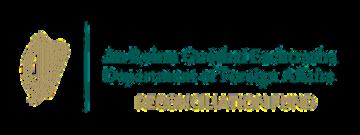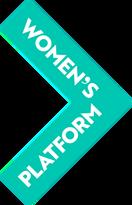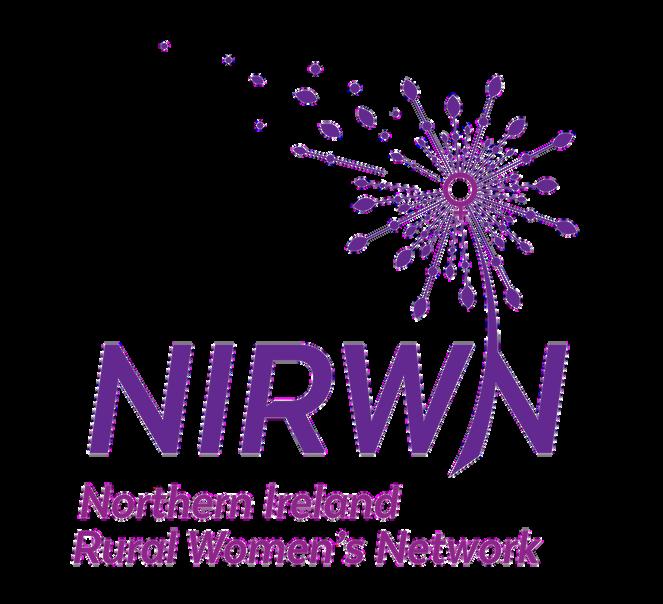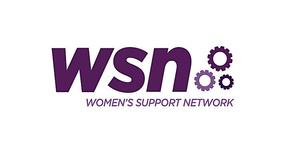

WOMEN'S SPACES
Creating platforms to strengthen women’s voices in peacebuilding, civic and political life.
LAUNCH OF TOOLKIT IN THIS ISSUE
HOW TO USE TOOLKIT
25 WOMEN FOR 25 YEARS OF UNSCR 1325
CALL FOR EVIDENCE ON WOMEN, PEACE & SECURITY
ACKNOWLEDGEMENTS
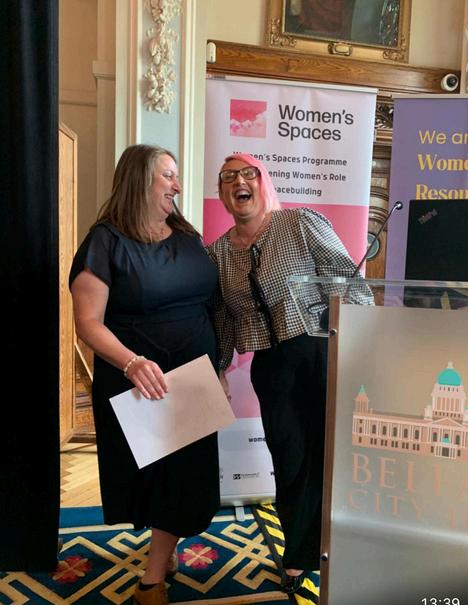
Pillars for Peace-building
A DIGITAL TOOLKIT ON WOMEN’S ACTIVISM IN NORTHERN IRELAND
It is with great pride and deep conviction that we introduce Pillars for Peace-Building: A Digital Toolkit for Women’s Activism in Northern Ireland.
This resource is born from a shared belief that women’s voices, leadership, and lived experiences are not just relevant to peace they are essential. Twenty-seven years after the Good Friday Agreement, the promise of inclusive peace remains incomplete for many women across our communities While the peace process has made great strides, persistent inequalities, unresolved legacy issues, and ongoing divisions continue to shape the lives of women in Northern Ireland
The Women, Peace and Security (WPS) agenda, grounded in United Nations Security Council Resolution 1325, calls for the full, equal, and meaningful participation of women in all aspects of peacebuilding.
Yet, Northern Ireland’s complex post-conflict context has shown us that this global vision must be interpreted and implemented through local voices and local realities
That’s where this toolkit comes in
Pillars for Peace-Building is not just a collection of resources it is a platform for transformation. It provides historical context on the often-overlooked role of women during the conflict and in peace efforts, alongside practical tools for gendersensitive advocacy, storytelling, and community action It features stories and insights from women who have shaped and continue to shape peace on the ground Continued on overleaf
Sarah Stack, Urban Coordinator
Charmain Jones, Rural Coordinator
LAUNCHING OUR TOOLKIT CONT...
We designed the toolkit to be interactive, mobile-friendly, and accessible to those who need it most, including women in rural and underserved areas It’s structured around four core areas: a timeline of women’s contributions to peace; tools for influencing change; blog posts from researchers and grassroots activists; and video interviews highlighting lived experiences.
But more than anything, this toolkit reflects a collective journey. It has been shaped in dialogue with women across Northern Ireland from young leaders to legacy survivors, from peace practitioners to community workers Their voices reminded us why this work matters As one participant said:
“Hearing women’s stories reminds me of the importance of using my own voice.”
That truth guided this entire project We are proud to launch this resource with contributions from 25 women, with many more to come as we expand the archive a tribute to 25 years of UNSCR 1325, told through 25 voices. As we co-create this evolving space, we invite collaboration from all sectors—civil society, government, academia, and beyond.
Because peace isn’t just a moment. It’s a movement.
With the right tools, networks, and stories, women in Northern Ireland can continue to shape that movement as architects of a more just, inclusive, and lasting peace
CHARMAIN JONES & SARAH STACK CO-DEVELOPERS PILLARS FOR PEACE-BUILDING TOOLKIT
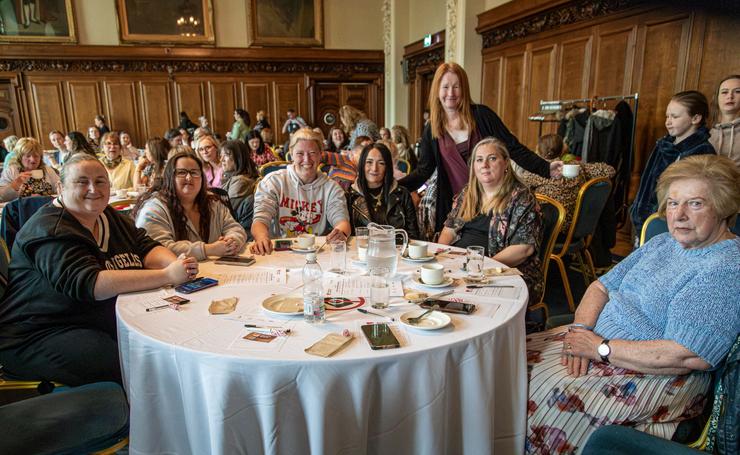
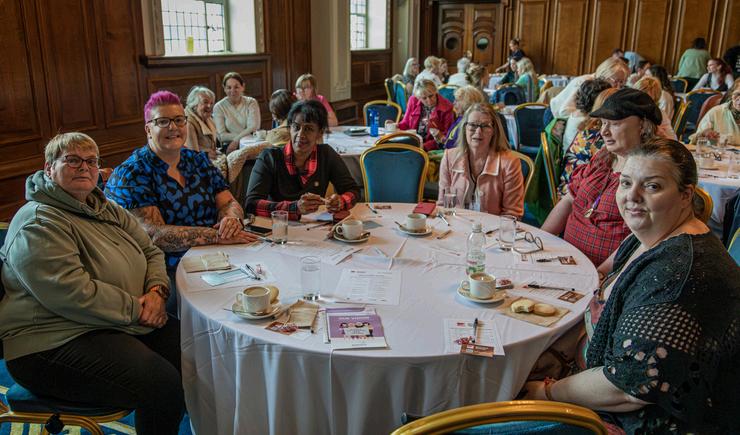
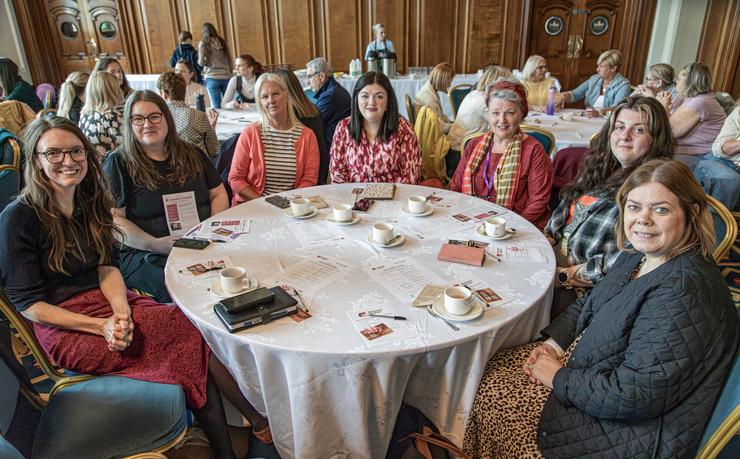
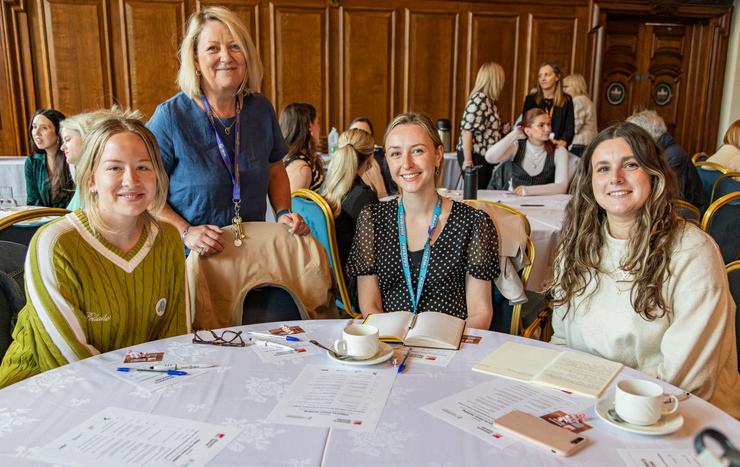
Photo credits: Nicola McKee Photography
HOW TO USE THE TOOLKIT
The toolkit features five key pillars and a timeline, which you can explore as a full resource or dip into as needed. Think of it like a set of colourful post-its on your desk each one sparking new ideas, prompting reflection, and helping you consider the impact of your work.
Whether you’re looking for practical tools, inspiration, or deeper reflection, the toolkit offers a range of resources to support your journey
Interactive Timeline – Highlights the vital contributions of local and international women’s movements to the peace process helping to reframe the narrative and celebrate women’s leadership.
Tools for Influencing Change – A hands-on collection of grassroots-developed resources, with a focus on storytelling and advocacy, to help you spark and sustain change in your community
Community Blog – Features insights and reflections from both researchers and grassroots women, focusing on the issues that matter most from gender justice to everyday activism
Video Interviews – Real voices, real stories Hear directly from women who share their lived experiences and journeys toward gender equality, peace, and progress.
Local Roots, Global Relevance
While grounded in the lived experiences of women in Northern Ireland, the toolkit was designed to resonate globally It draws from:
Local and international case studies
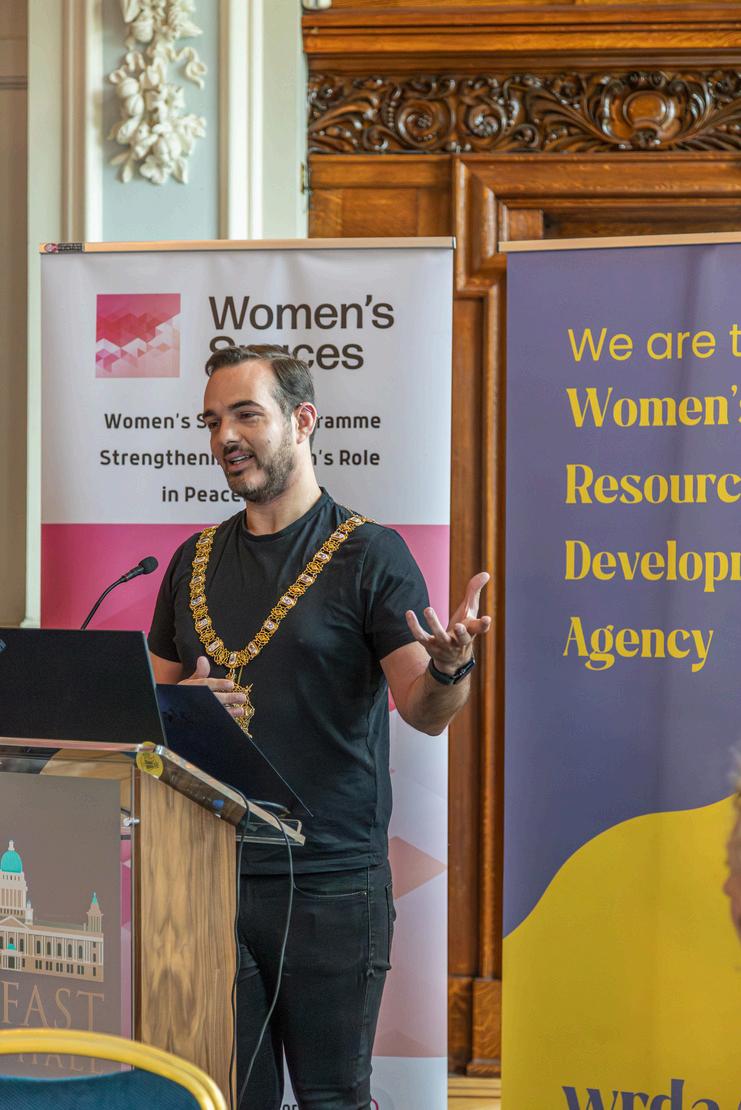
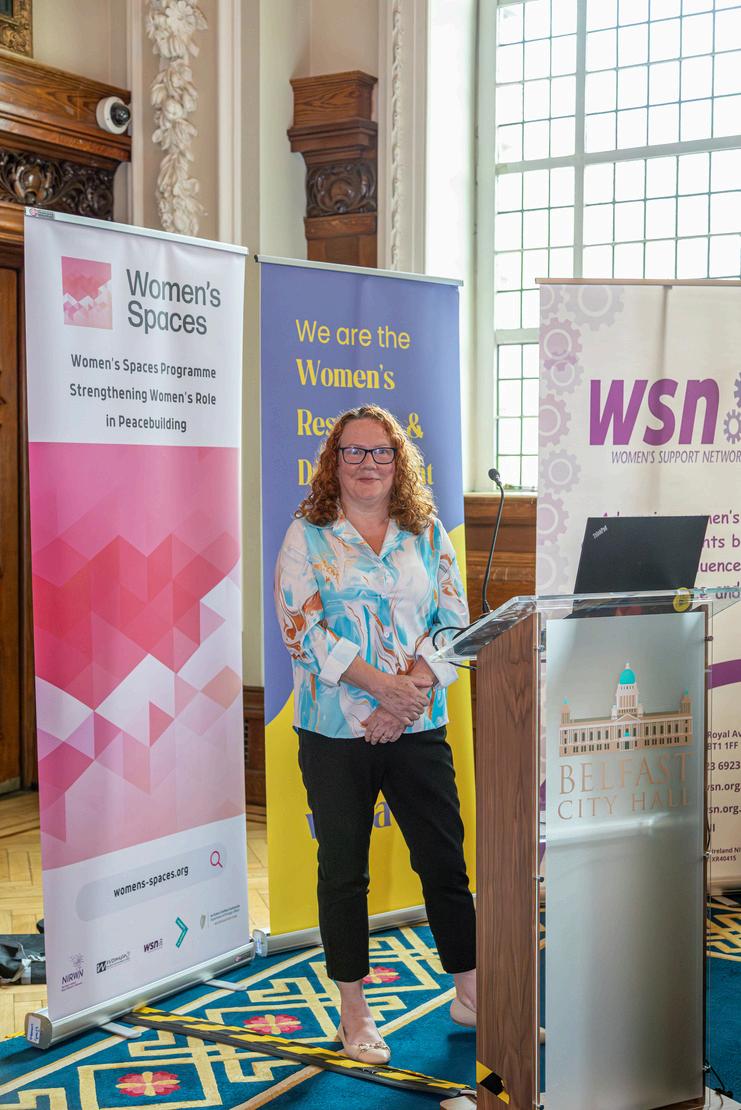
Guest contributions from activists and researchers
Regional and global research
Additional materials for those interested in academic study
Whether you are a community worker, volunteer, practitioner, or researcher, we hope this toolkit supports your work and opens new conversations on activism, equality, and peace.
Explore the toolkit now
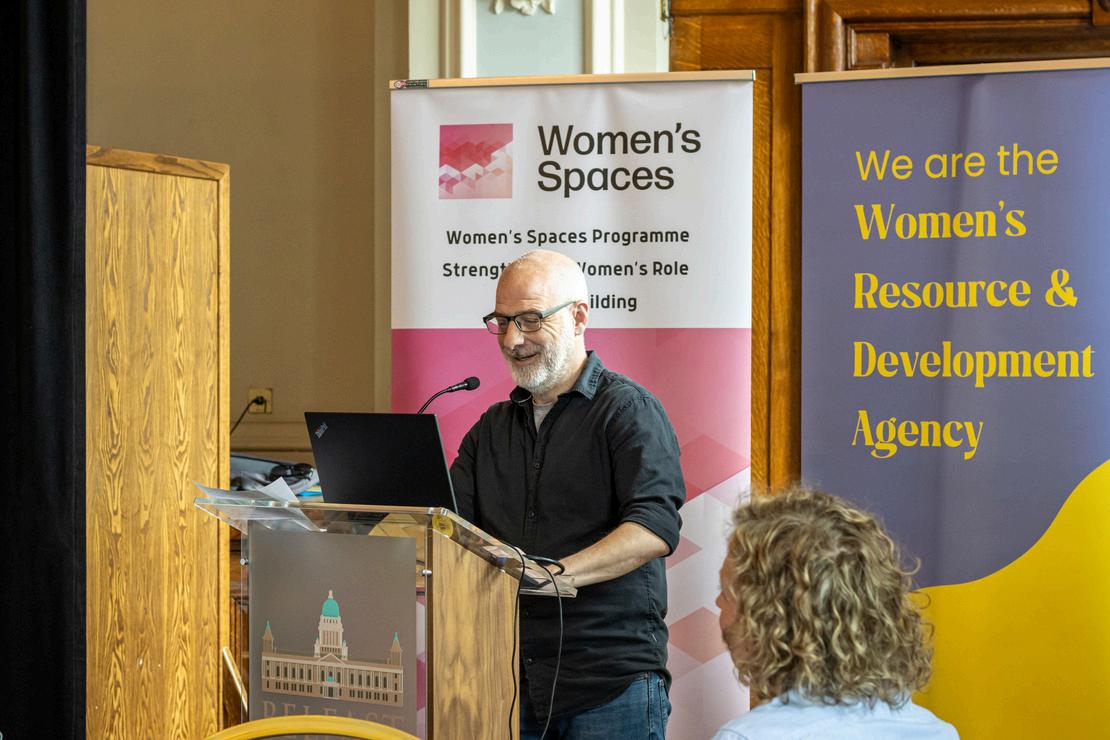
Discover ideas, tools, and stories to inform, inspire, and empower your work: www pillarsforpeace org
Councillor Micky Murray
Lord Mayor of Belfast
Dessie Donnelly Rabble Coop
Councillor Áine McCabe
BCC Women’s Steering Group
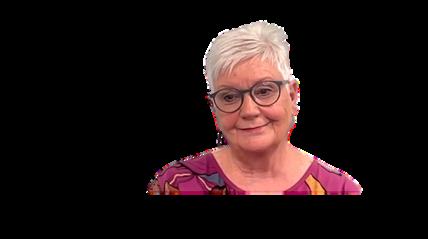
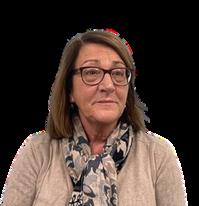
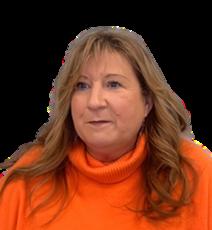


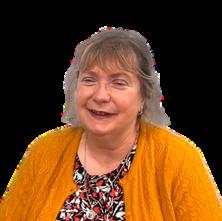

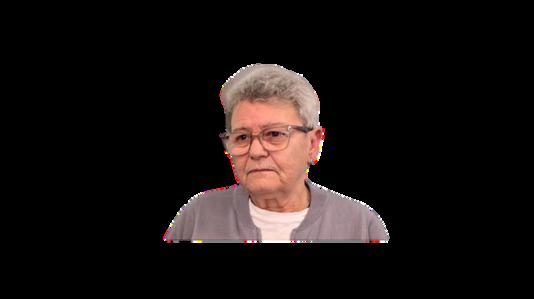


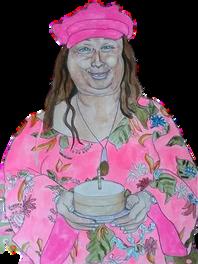

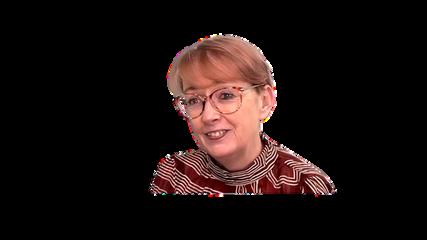




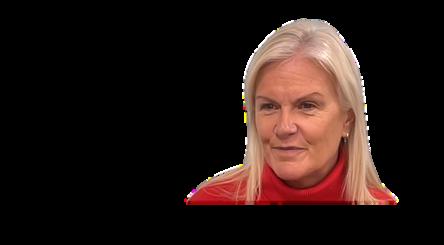
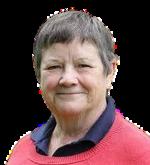
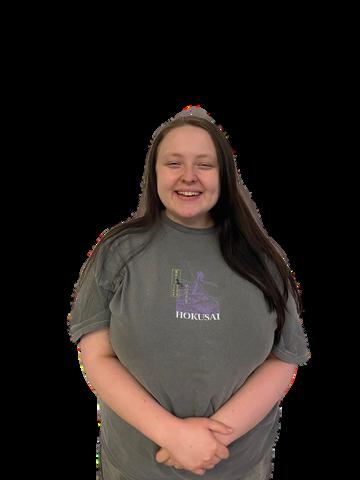


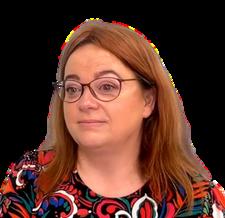
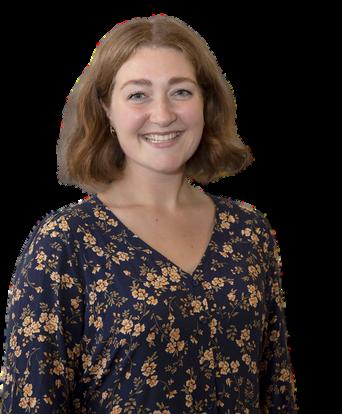
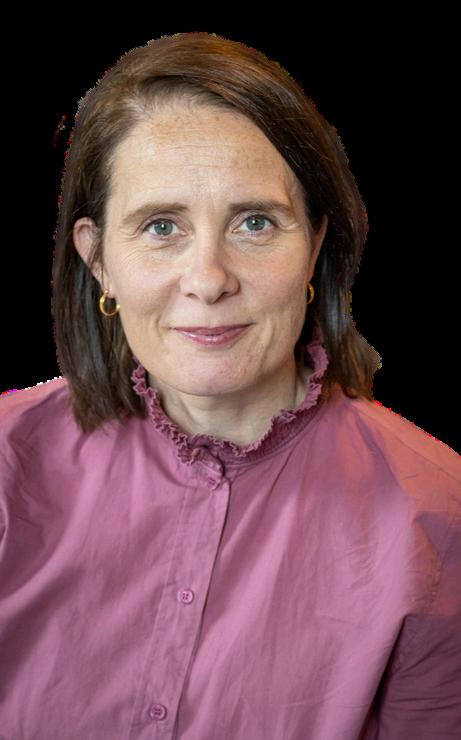
e Coyle
Majella Muphy
Martina Byrne
Avila Kilmurr
Meghan Hoyt Siobhán Harding
Anne Carr Anne McVicker
Barbara Boyle Bronagh Hinds BronaghMcAtasney
Catherine Cooke Denis rory
Helen Crickard
d McLoug
ophie Nelson Alex Brennan
Video Interviews and Blog Posts
Anne Carr, Community Dialogue
Anne McVicker, Women’s Resource & Development Agency
Barbara Boyle, BME Women’s Network
Bronagh Hinds, DemocraShe
Bronagh McAtasney, NI Screen
Catherine Cooke, Foyle Women’s Information Network
Denise Hughes, South Belfast Alternatives
Eileen Weir, Community Activist
Elaine Crory, Women's Policy Group NI, WRDA
Helen Crickard, Reclaim the Agenda
Jonna Monaghan, Women's Platform
Kristyene Boreland, BME Women’s Network
Louise Coyle, NI Rural Women’s Network
Majella Murphy, NI Rural Women’s Network
Martina Byrne, Women of Clonduff
Nuala Toman, Disability Action
Sinéad McLoughlin MLA, APG on UNSCR 1325 on WPS
Sonya McMullan, Women’s Aid Federation NI
Sophie Nelson, HERe NI
Alex Brennan, Women's Budget Group NI
Alison Black, Trans and Disability Rights Activist
Avila Kilmurray, Social Change Initiative
Eve Jones, NI Rural Women’s Network
Meghan Hoyt, Women’s Resource & Development Agency
Siobhán Harding, Women’s Support Network
There is no peace without women
Impact of Women in Transforming Society
A migrant woman’s experience of the NI peace process
Building democracy: women’s activism
Educating & training women in peacebuilding & storytelling
Women finding their voices
Women in Conflict Transformation
Empowering grassroots women in the communities
Campaigning for what matters most to women
Feminist organising
CEDAW, the ‘international bill of rights for women’
Importance of racial equality in creating peaceful society
Empowering Rural Women to be Visible, Influential and Valued
Women and Border Communities
Rural barriers and opportunities for peace
Encouraging active participation for disabled women
Women, Peace & Security and NI Assembly
Ending Violence against women and girls
Ensuring the inclusion of LGBTQIA+ women in peacebuilding
What is Gender Budgeting?
Grassroots activism for transgender equality
Women leading community change
Young women ensuring they have a seat at the table
Misogyny, hate crime, and feminist legal theory
Cost of Living Crisis on Women
Blog posts coming soon to our living toolkit...
Alex Stevenson, Master of Conflict Studies student
Clare Anderson, Women’s Resource & Development Agency
Daniela Tartakova, Disability Rights Activist
Danielle Roberts, Reclaim the Agenda
Dervla O’Neill, Anti-Poverty Activist
Jennifer Wright, Women’s Resource & Development Agency
Lynette Glen, Atlas Women’s Centre
Majella Murphy, NI Rural Women’s Network

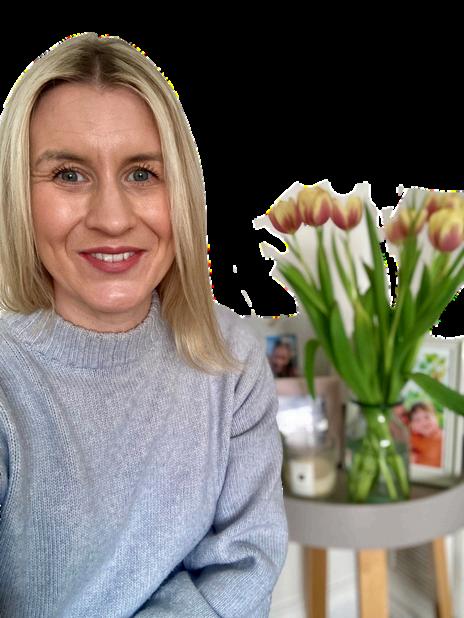
esource & Development
rcher
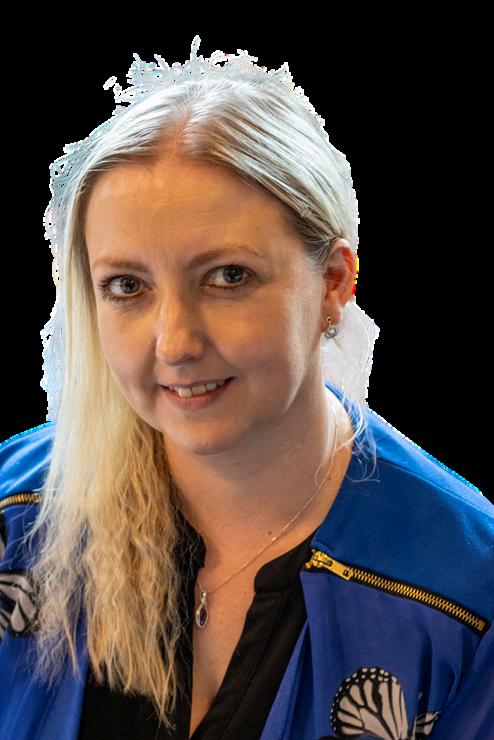
Impact of ‘Where are the women?’ in the Digital Film Archive Workshops
Trauma informed community based support - the Mas Project
Living Out Loud: My Fight for Disability Justice and Mental Health Support
Reclaim the Night: Taking Back Our Streets and Our Voices
Living Library, Living Change: Speaking Up for Women and Poverty at Stormont
Advocacy and Support for Young Mums - Mas Project
A Mum’s Lived Experience From Rock Bottom to Rising
The foundation of a rural regional women’s network
When Home Isn't Safe: Do Homelessness in Northern
What Men Learned from t Workshops
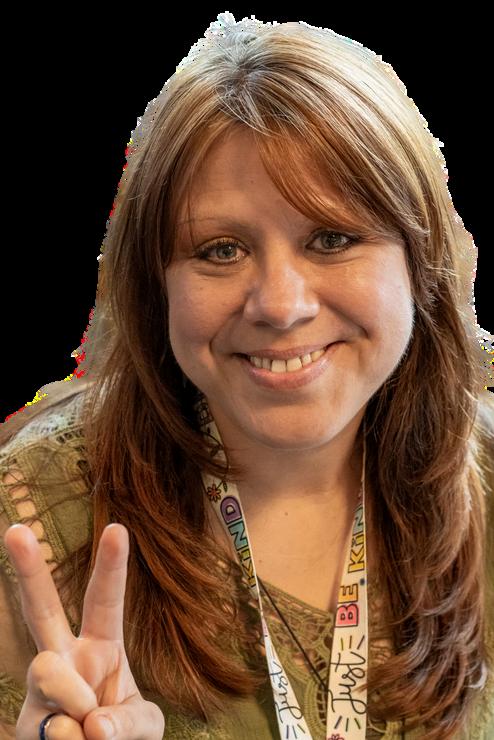

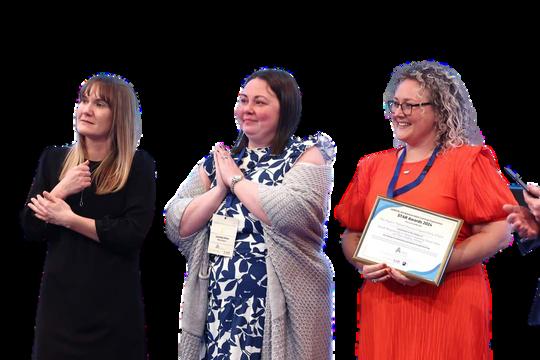

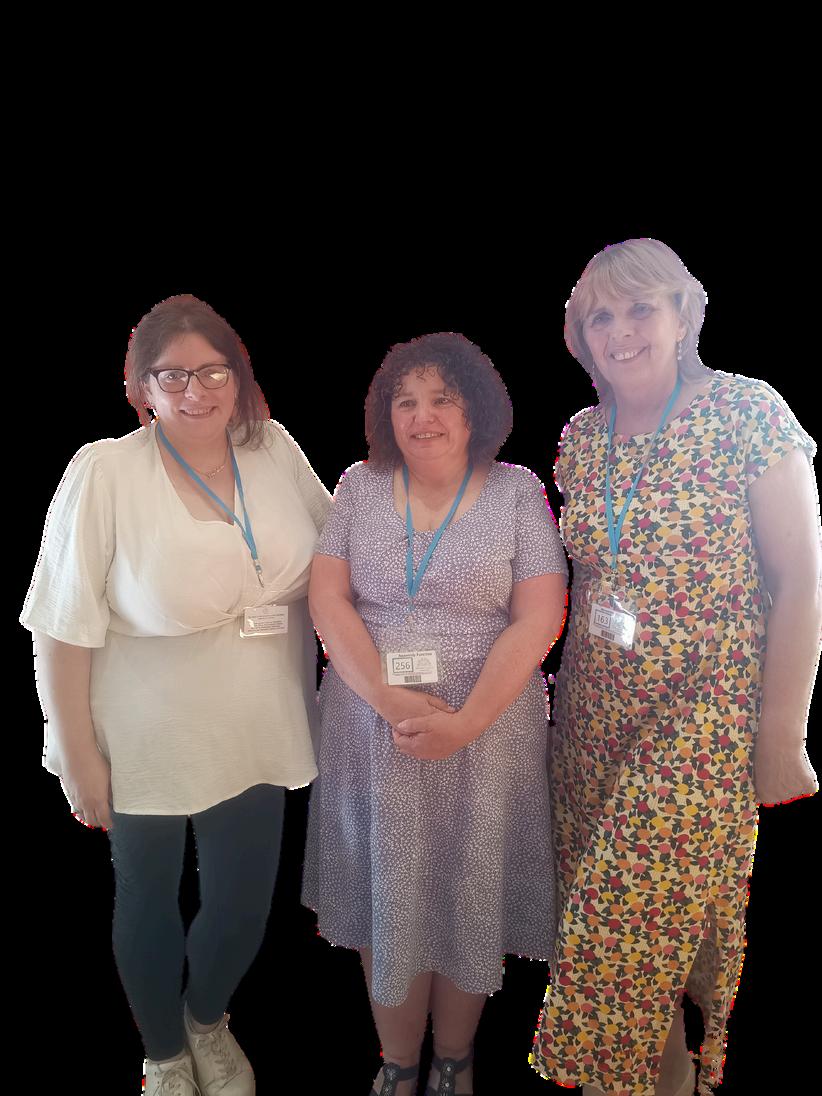
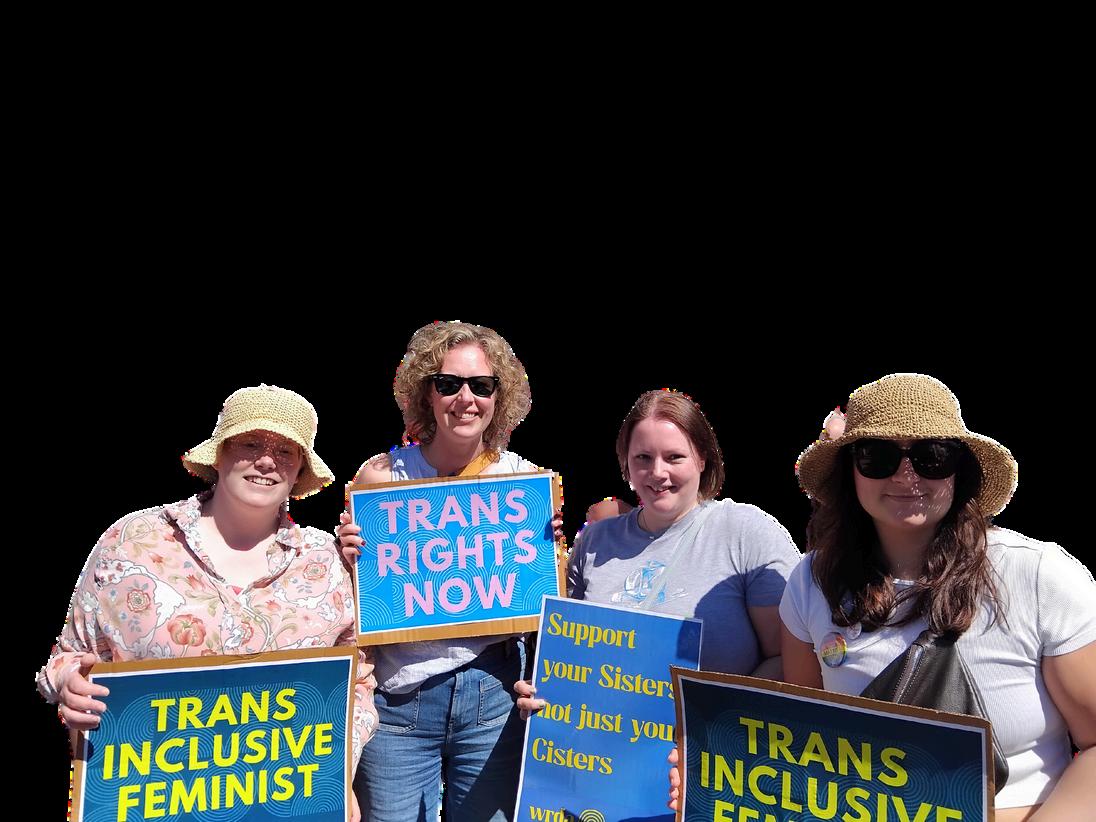
Alex Stevenson Clare Anderson Daniela Tartakova
Jennifer Wright Lynette Glen Majella Murphy
Megan McClure Botha
Rachel Franklin
Call for Evidence on Women, Peace & Security
On 2nd June 2025, the Women’s Spaces team led by the Urban Coordinator, submitted a response to the International Development Committee’s Call for Evidence on Women, Peace and Security. The submission includes 10 policy recommendations.
The UK’s 2023–2027 National Action Plan (NAP) on Women, Peace and Security (WPS) outlines important strategic ambitions, but currently falls short of delivering substantive, measurable outcomes especially for women and girls from conflictaffected and marginalised communities in Northern Ireland. Funding reductions, weak monitoring mechanisms, and limited domestic implementation, particularly in Northern Ireland, undermine the UK’s credibility and effectiveness in advancing the WPS agenda
This submission offers a response to the Committee’s inquiry questions, grounded in policy analysis and lived experience evidence, and includes 10 key recommendations to strengthen the UK’s WPS commitments, particularly in line with local implementation of WPS
As part of this submission, Women’s Spaces consulted with the Women’s Regional Consortium NI and the Law Centre NI over their research findings. Finally, the Women’s Spaces Consortium fully supports the Women’s Policy Group NI’s response to the call for evidence.
Summary Recommendations
1.Strengthen implementation, monitoring, and accountability frameworks
2 Increase sustainable funding for local women’s groups
3 Ensure transparency in WPS investment and resource allocation
4 Adopt an intersectional approach
5 Prioritise full implementation in Northern Ireland
6.Broaden definitions of security and armed conflict
7.Embed co-design and public participation models
8.Promote whole-of-government action including in justice and education sectors
9 Enhance international collaboration and networking
10 Address online and digital violence against women
To read the full report, visit: womens-spaces org
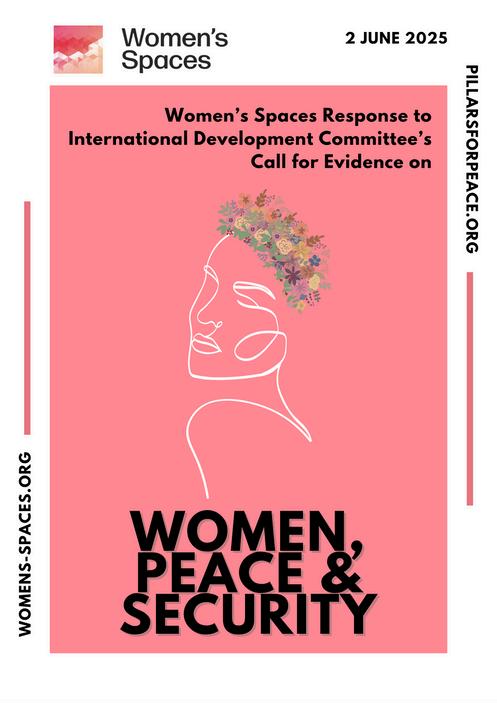
Acknowledgements
We extend our heartfelt thanks to our strategic leadership team, whose guidance and vision have helped shape this project:
Jonna Monaghan, former Director of Women’s Platform
Dr Anne McVicker, Director of WRDA
Louise Coyle, Director of NIRWN
Karen Sweeney, Director of WSN
Deirdre Quinn, Training and Development Manager at WRDA
Sincere thanks to all those who piloted the toolkit and shared their insights to ensure its relevance and impact:
Women’s Platform Board
Women’s Policy Group NI
Women’s Centres across Northern Ireland
Peace practitioners and grassroots women leaders
We are especially grateful to our project evaluators, whose contributions strengthened both the learning and legacy of the Women’s Spaces programme:
Aoife Mallon
Siobhán Harding
To Alan in Belfast, thank you so much for editing our video interviews and helping us improve our filming practice!
To our funder, Ireland’s Department of Foreign Affairs, we express deep appreciation for your support through the Reconciliation Fund, and your commitment to inclusive peace and gender justice.
A special thanks goes to the team at Rabble Coop, whose insight, creativity, and technical expertise brought this digital toolkit to life Their ability to translate our work into an accessible and interactive online resource has been invaluable. Without their dedication and collaborative spirit, this toolkit would not have the reach or impact it holds today.
We are particularly grateful for our partnership with NI Screen and the Digital Film Archive through Bronagh McAtasney Thank you so much for your work to integrate the video interviews into the archive to ensure women’s voices having a lasting place in history
Finally, we extend our deepest gratitude to the women who contributed and continue to contribute their stories, voices, research, and visions to this toolkit. Your courage, insight, activism, and leadership form the foundation of this work and will inspire generations to come
